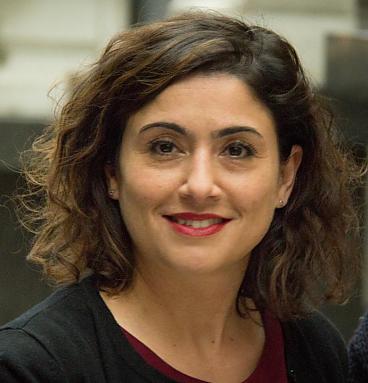Karabulut: ‘Prevent radicalisation, get serious about integration’
Karabulut: ‘Prevent radicalisation, get serious about integration’

Integration and equal treatment are, in the opinion of SP Member of Parliament Sadet Karabulut, the answer to growing division and radicalisation in the Netherlands. “People from diverse backgrounds are sometimes fearful, they feel themselves to be misunderstood and excluded. It’s time to breathe new life into Article 1 of the Dutch Constitution. Everyone who lives in the Netherlands must be subject to equal treatment, in terms of both rights and duties, without regard to religion, origin, gender, colour of skin or sexual orientation.”
In recent years both socio-economic and socio-cultural differences have increased in our country. Children who sit in the same classroom live in separate worlds. The ethnic concentration in neighbourhoods and districts is growing. “People are more and more living lives that bypass each other,” says Karabulut. “Alienation and radicalisation lie in wait, especially when you take into account exclusion, mounting unemployment, poverty and the extreme right’s politics of fear.”
The SP stands for a Netherlands in which we live together, not apart. That means that socio-economic policy must aim at reducing differentials of income and wealth and at combatting poverty on the one hand and self-enrichment on the other. At the same time we must get serious about both integration policy and diversity policy. “In doing so we must not fuel ethnic-cultural tensions but tackle abuses and create equal opportunities for living together,” Karabulut insists. “We’ll combat radicalisation and segregation by connecting groups in our society instead of setting them against each other.”
Six proposals for integration and against division
- Combatting segregation: the government must take legislative measures against separate neighbourhoods and schools. The neighbourhood and the school should hold a mirror up to society. In schools, lessons on ideologies and religions should be held for all children together. There should be a place from primary school onwards for existential questions about self-determination and independent learning, thought and analysis.
- Reception and accommodation of refugees should be in small-scale facilities distributed throughout the entire country. The government has a duty to generate support amongst the inhabitants and therefore to ensure that richer local authority districts also accommodate refugees.
- People with a right to reside should not be housed only in poor, segregated neighbourhoods but housed equally across different neighbourhoods in order to prevent renewed segregation. The need for housing should be combatted by building new residential properties.
- Language and citizenship education should not be given over to the market but must be accessible, free and openly available, organised by the educational authorities in neighbourhoods and districts. In that way we will ensure that everyone who is deficient in the Dutch language has the possibility to work on this.
- Exploitation, discrimination and exclusion from the labour market should be tackled with vigour by enlarging the powers of the labour inspectorate, increased fines and the naming and shaming of organisations who transgress. The government should itself set a good example by making the composition of its own staff mirror that of society as a whole.
- It isn’t people’s origins but our common future that counts. Children born here are not immigrants or foreigners but simply from here. Self-determination and not the ethnic group to which the government says you belong should be the starting point for integration policy. If necessary for specific ends, specific policies can be employed.
